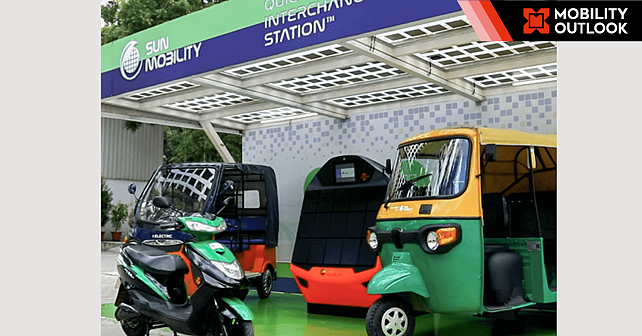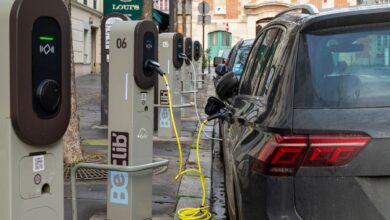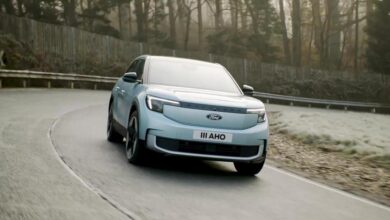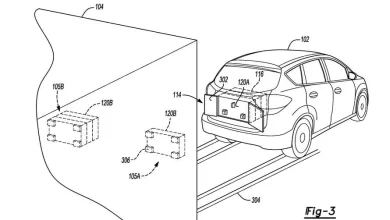Can Charging Stations Keep Pace With The Surge In Electric Vehicles?

Fuelled by a combination of mergers, acquisitions, strategic partnerships, and a surge in EV charging solution launches, the global electric vehicle (EV) charging station market is set to experience substantial growth, with projections estimating an increase of $ 38.06 billion from 2024-2028.
According to Technavio, the growth is anticipated at a compound annual growth rate (CAGR) of nearly 29.13%. However, the market faces significant challenges due to the lack of standardisation in EV charging infrastructure.
The EV charging station market is witnessing several notable advancements, as key players introduce innovative charging solutions. For instance, EVI Technologies launched a mobile application in March 2022 that includes features like station location, navigation, slot booking, and online payment. Moreover, the Indian government’s plan for a low-cost EV charging network in Delhi, offering rates as low as USD 0.026 (INR 2.17) per unit, exemplifies the supportive regulatory landscape boosting market growth.
Three primary trends shaping the EV charging station market
Expansion of Charging Infrastructure: As the number of EVs on the road increases, the expansion of charging infrastructure is crucial. This includes building more charging stations and enhancing their accessibility.
Faster Charging Technologies: The adoption of faster charging technologies, such as Level 3 charging, is becoming more common to reduce charging times and improve user convenience.
Integration of Renewable Energy: Incorporating renewable energy sources into charging stations is gaining traction, promoting sustainable charging solutions and reducing the environmental impact of EVs.
Challenges
Despite the growth, the EV charging station market faces several challenges:
Lack of Standardisation: The absence of universal standards for chargers and installations in public places is a significant barrier. Different countries use various charging standards, such as CHAdeMO in Japan and CCS in Europe, the US, and South Korea. This lack of uniformity increases the cost of building and expanding public charging networks.
High Installation Costs: The high upfront cost of installing charging stations poses a barrier for businesses and individuals. This challenge is particularly pronounced in rural areas and developing countries, where the necessary infrastructure may be lacking.
Limited Charging Infrastructure: In many regions, especially rural areas, there is limited charging infrastructure, making it difficult for EV owners to find convenient charging options.
Need for Reliable Energy Sources: Ensuring reliable and efficient energy sources to power charging stations is crucial for a seamless charging experience. Innovations like wireless charging and ultra-fast chargers are addressing these challenges, but widespread implementation is still needed.
Growing Segments
The AC segment of the EV charging station market is growing, driven by the increasing demand for Plug-in Hybrid Electric Vehicles (PHEVs) in emerging markets. AC charging stations require less infrastructure, resulting in lower setup, installation, and maintenance costs. At these stations, AC current is converted into DC by an onboard charger before being sent to the battery pack. Different types of AC power sockets, such as 3.7kW, 11kW, and 22kW, are available depending on the country’s electric energy distribution. Initiatives like MG Motor’s plan to install 1,000 AC fast chargers in India are expected to further drive market growth.
Government Initiatives
Supportive government initiatives, such as subsidies and tax exemptions, are propelling the EV charging station market. The market includes various charging technologies like AC and DC stations, with DC stations favoured for their faster charging capabilities. Key components in this market include EV motors, charging cables, and Electric Vehicle Supply Equipment (EVSE). Innovations in wireless charging and ultra-fast chargers, along with continued investments in EV and battery technology, grid balancing, and energy storage, are driving the market towards sustainable transportation solutions.
Conclusion
The EV charging station market is rapidly expanding, driven by the increasing adoption of EVs globally. Government initiatives, growing environmental awareness, and advancements in charging technology are key drivers of market growth. The integration of renewable energy sources further enhances the sustainability and accessibility of EV charging stations, which is crucial for widespread EV adoption. As the market continues to grow, addressing challenges like infrastructure standardization and high installation costs will be vital to ensuring its continued success and sustainability.
Photo is representational; courtesy: SUN Mobility.
Also Read:
Hyundai India Establishes First 180 kW DC Fast Public Charging Station In Chennai



